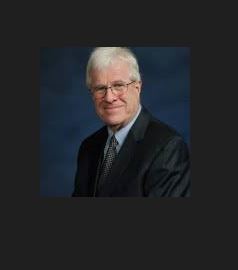This article first appeared in the St. Louis Beacon, May 4, 2010 – A century after the Civil War, 19-year-old Chris Hexter of St. Louis joined an army of idealistic youths in blue jeans and sneakers heading south to Mississippi to fight side by side with African-American residents who were demanding — at long last — their constitutional right to vote.
It was the Freedom Summer of 1964, and though 46 years have come and gone, the human struggle that ensued during that sweltering summer in the Delta remains seared into American history — and in the memories of those who were there.
Chris Hexter, now 65, says that summer in Mississippi didn’t change who he was but reinforced his decisions to work for civil and social justice.
“It was a question of ordinary people engaged in something that was beyond themselves,” he said. “You felt that you were engaged in something that was bigger than what you could do alone and that people in Mississippi were enabled to do things they couldn’t do alone. To that extent, you felt exhilarated.”
While some volunteers worked to organize and register voters, others taught subjects such as civics and philosophy in Freedom Schools set up throughout the state. Hexter taught in two Freedom Schools in Sunflower County — first in Ruleville, the hometown of renowned civil rights activist Fannie Lou Hamer — and then in Indianola, the county seat.
The civil rights volunteers faced threats of violence and mob action. Hundreds were arrested; many were beaten. Homes and Freedom Schools were burned. Three student volunteers — two white and one black — disappeared and were later found murdered.
But ultimately, with the eyes of the nation focused on whites and blacks standing together in Mississippi, Congress passed legislation that guaranteed the civil rights of millions of black Americans, finally putting a stop to overt apartheid and the arbitrary rules and requirements that had kept them from voting.
Hexter said he hopes to reach today’s high school and college students because this army of activists were about their age.
{C}{C}
“People leading the movement were incredibly young, and they were making incredibly significant decisions,” he said.
Hexter, then a white college student at the University of Wisconsin, has continued to work for civil rights and social causes. He has been a labor attorney with the St. Louis firm of Schuchat, Cook and Werner since 1976. Charles McLaurin, then a black college student who served as an organizer, would later serve as director of public works in Indianola, the town where he once led protests. Tracy Sugarman, a white East Coast journalist, fought his first battles for America as a soldier during World War II.
Hexter said his commitment was an outgrowth of his upbringing by parents who were deeply aware and concerned about social issues. His father Jack Hexter taught history at Washington University and at Yale. …..
Complete Article Here: https://www.stlpr.org/arts-culture/2010-05-04/a-conversation-about-freedom-summer-with-a-st-louisan-who-was-there
